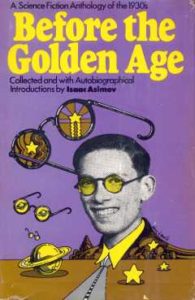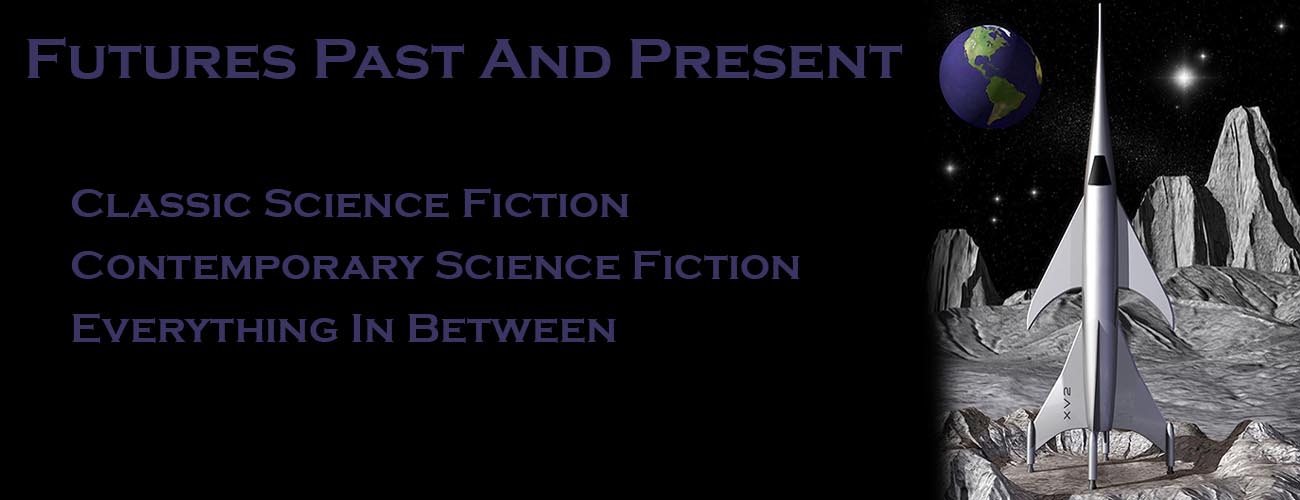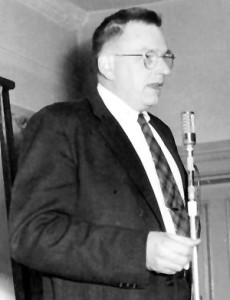It has been said that imitation is the sincerest form of flattery. With that in mind, I’m going to steal borrow an idea from Alexandru Constantin over at the Barbarian Book Club. His challenge was to read three fantasy short stories published before The Lord of the Rings changed the landscape of fantasy.
I’m going to apply that idea to science fiction.
There can be little argument that when John W. Campbell, Jr. became editor of Astounding Stories (which later became Astounding Science Fiction) in 1938, he changed the field of science fiction forever. Whether this was a good thing or a bad thing is certainly open to interpretation. The accepted narrative for years has been that this was a completely good thing. Campbell introduced scientific rigor and raised the literary standards by jettisoning many of the pulp tropes of mad scientists (usually with beautiful daughters for the hero to win) and scantily clad women being abducted by bug-eyed monsters.
Lately that narrative has been challenged. Some writers have claimed that this wasn’t a good thing at all. I’m not going to try to name them because I will invariably leave someone out and this isn’t intended to be a personal attack on anyone. A few have even gone so far as to say Campbell ruined science fiction.
 I’m not prepared to go that far. I happen to like Campbellian science fiction, just as I like Tolkienesque fantasy. I also happen to like science fiction from before Campbell, just as I like fantasy that predates Tolkien. Much of the science fiction from the previous century hasn’t aged well, but that can be said of any genre.
I’m not prepared to go that far. I happen to like Campbellian science fiction, just as I like Tolkienesque fantasy. I also happen to like science fiction from before Campbell, just as I like fantasy that predates Tolkien. Much of the science fiction from the previous century hasn’t aged well, but that can be said of any genre.
But I do think these folks have a point. Science fiction wasn’t the same after Campbell, and we lost some of the energy and thrill that went with it. Even Isaac Asimov, a Campbellian writer if there ever was one, admitted as much in his introduction to Before the Golden Age, his autobiographical anthology of pre-Campbellian science fiction.
With a tip of my space helmet to Alexandru Constantin, here’s what I’m proposing.
- Read three short stories that are clearly science fiction. The stories should be from before 1938, when Campbell took the reigns of Astounding.
- Post a review on your blog, telling us why these stories should still be read. Or not, as the case may be. And post a link here in the comments so we can find your review.
- You also need to tell us where you read them so anyone interested can track them down.
As I mentioned in my post at Adventures Fantastic last night, we’ve been told that the older stuff is racist, sexist, etc. The pronouncement has also been made the science fiction has always been progressive. I suggested a Schrodinger’s Cat explanation for how it can be both. Here’s a chance to see what early science fiction was really like.
So that’s your assignment, class. Get to it.


Every day is a pre-Tolkien/Campbell challenge for me!
🙂 Glad to hear it.
This isn’t quite what you were proposing but I read Groff Conklin’s Great Science Fiction by Scientists last year and posted about it. It includes Julian Huxley’s “The Tissue-Culture King” (1926) and J.B.S. Haldane’s “The Gold-Makers” (1932) from non-SF magazine sources and Breuer’s “The Gostak and the Doshes” (1930) from Sloane’s Amazing and Willy Ley’s “A Martian Adventure” (1937) from Tremaine’s Astounding. From the entire collection, I was particularly impressed by five and three came from the four I’ve listed above. And I’ll grant that a certain uninhibited wildness may have been lessened through Campbell’s era but Campbell did carry on with Doc Smith and bring us van Vogt, after all, and his editing is usually treated as being far more monolithic than it actually was. There are exceptions to almost every rule about Campbell’s era. All that said, overall, to me, it was an overwhelming positive.
Anyway, my take on four pre-Campbell stories: Review: Great Science Fiction by Scientists, ed. by Groff Conklin
BTW, on the Tolkien thing, does “pre-Tolkien” mean pre-30s Hobbit or pre-50s LOTR or pre-60s Ace paperbacks/1970-ish Ballantine paperbacks? (Sorry if my dates are wrong, as I’m going from memory but it’s something like that.) It’s my impression that Tolkien really wasn’t “Tolkien” until the paperbacks he and/or his publishers snobbishly refused to allow finally came out thanks to Wollheim’s, um, assertiveness.
Thanks, Jason. Those sound intriguing. And thanks for the link.
As for the LotR, I believe it was the 1950s edition. I forget the exact date Alexandru used, but it was in the early 1950s.
As if I can fit anymore in my busy schedule…I guess I will just have to. An excellent challenge!
Thank you. Since it looks like my time constraints will make short fiction easier to read than novels (at least if I want to get any writing done this fall), I’m looking forward to this challenge. I’m still going to try to compare the magazine version to the book version of Darker Than You Think, but that will probably not happen until late September or October.
I’m looking at both these challenges as ongoing so as to lighten the pressure. I also think they are important projects that will educate and inform. We do not want speculative fiction to enter a “dark ages” phase, because if you follow the progressive mindset then that is the future.
I agree. I view both challenges as open-ended. I think it’s important to understand and know the history of the field. You don’t have to like everything nor agree with all of the authors’ positions. But willful ignorance is inexcusable.
Pingback: The Pre-Campbell Challenge – STORYHACK
Pingback: Links (2018-09-05) | Featured Futures
Funnily enough, I was already in the process of rereading Skylark Three. It is still fun, as I remembered, but the story bogs down in the middle while the Norlaminians teach our heroes a bunch of new Super Science(tm) and build the new super Skylark so he can single-handledly exterminate the Fenachrone, a whole space-going species. (It seems that pre-Campbell stf was big on genocide.) I shall certainly go on to reread Skylark of Valeron (and the post-Campbell Skylark DuQuesne) but if i wanted to introduce someone to Doc Smith’s work I should probably hand them the (Campbell era) Galactic Patrol.
(I think that for my next “pre-Campbell” book, I shall choose The Black Star Passes by another writer of the who specialized in super-science space opera. No names, but his initials were JWC. 🙂
I’ve been slammed at work and haven’t had a chance to followup on this challenge. I’ve read a story and just haven’t gotten the review up. Maybe this weekend.
And like you, I’m planning on reading something by the author of The Black Star Passes.
I’ve read a bunch of pre-Tolkien fantasy and a lot of early sci-fi (and I’m writing this in 2025!) but if I were to do this I might include something by Lord Dunsany, maybe Richard Garnett or C.L. Moore. One of Jerome K. Jerome’s funny ghost stories would qualify! As for sci-fi I might try Clare Winger Harris or H. P. Lovecraft (aliens, remember?) Maybe some of Rudyard Kipling or Frank R. Stockton’s science fiction stories. Or the utterly forgotten San Francisco based writer Robert Duncan Milne. All-in-all it would be fun! Hope you enjoyed your reads!